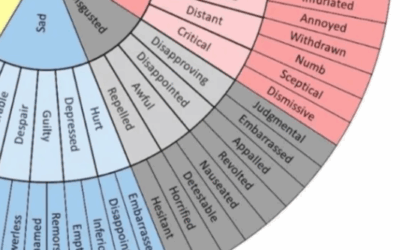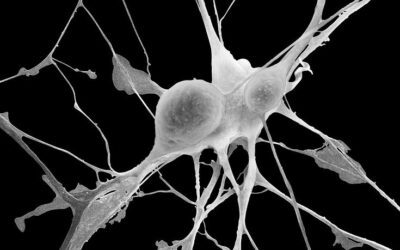Can Therapy Treat Ehlers-Danlos Syndrome (EDS) and Mast Cell Activation Syndrome (MCAS)?
Ehlers-Danlos Syndrome (EDS) and Mast Cell Activation Syndrome (MCAS) are two complex, often co-occurring conditions that present significant challenges for both patients and healthcare providers. The intricate interplay between these disorders creates a constellation of physical and psychological symptoms that require a multidisciplinary, integrative approach to management and treatment (Molderings et al., 2021). To fully understand the impact of EDS and MCAS, it is essential to consider the biological, psychological, and environmental factors that contribute to their expression and experience.
The Physical and Psychological Impact
Living with EDS and MCAS can be a profound transformative experience, one that echoes the archetype of the “wounded healer” described by Carl Jung (1951). The constant physical challenges posed by hypermobile joints and systemic mast cell reactions can create what existential psychotherapist James Hollis (2010) calls a “swampland of the soul” – a difficult, often treacherous terrain that demands both courage and insight to navigate.
The psychological impact of these conditions cannot be overstated. As Kuehl (2020) notes, individuals with EDS and MCAS often experience higher rates of anxiety, depression, and trauma-related symptoms compared to the general population. The unpredictable nature of symptoms, combined with the often-invisible nature of these disorders, can lead to feelings of isolation, frustration, and self-doubt (Cline-Struchtemeyer, 2020).
Understanding the Body’s Response
Advances in neuroscience have provided valuable insights into the complex ways in which EDS and MCAS affect the body’s stress response systems. As neuroscientist Antonio Damasio (2018) explains, the constant physical adaptations required by EDS, combined with the unpredictable nature of MCAS reactions, can create a state of chronic physiological arousal that profoundly impacts emotional processing and regulation.
This interplay between physical and emotional distress is further elucidated by the work of psychologist Allan Schore (2019), who emphasizes the critical role of the autonomic nervous system in shaping both bodily sensations and affective experiences. For individuals with EDS and MCAS, dysregulation of the autonomic nervous system can lead to a heightened sensitivity to both internal and external stressors, creating a feedback loop that perpetuates symptoms and emotional distress (Eaton et al., 2021).
The Role of Somatic Awareness
Given the central role of the body in the experience of EDS and MCAS, therapeutic approaches that emphasize somatic awareness have proven particularly valuable. Somatic Experiencing, developed by Peter Levine (2010), is one such approach that focuses on developing a “felt sense” of the body’s internal states and sensations.
This concept of “felt sense” was first introduced by philosopher and psychologist Eugene Gendlin (1996), who argued that attending to the subtle, often pre-verbal sensations of the body could provide valuable insights into emotional experience and facilitate healing. For individuals with EDS and MCAS, cultivating this kind of somatic awareness can be a powerful tool for navigating the complex, often unpredictable terrain of their symptoms.
Similarly, Jungian analyst Marion Woodman (1993) emphasizes the importance of “coming home to the body” – learning to trust and work with, rather than against, the wisdom of physical experience. This approach recognizes that the body is not merely a source of symptoms to be managed, but a vital ally in the healing process.
Therapeutic Approaches
Effective treatment for EDS and MCAS often involves a multidisciplinary, integrative approach that combines both traditional and innovative modalities. Somatic Trauma Mapping, as described by Herman (2015), can be a valuable tool for identifying patterns of physical stress and tension related to past traumatic experiences.
Aromatherapy, when carefully tailored to avoid triggering MCAS reactions, has shown promise in managing symptoms and promoting relaxation (Aydın & Ceyhan, 2020). Dialectical Behavior Therapy (DBT) skills, such as mindfulness and distress tolerance, can be particularly helpful for managing the emotional challenges of chronic illness (Linehan, 2021).
Interventions drawn from the fields of color psychology and implicit memory, such as those described by Elliot and Maier (2014) and Reyna (2020), may also prove beneficial in developing new coping strategies and promoting emotional well-being. By engaging multiple sensory modalities and accessing implicit memory networks, these approaches can help individuals with EDS and MCAS create new, more adaptive patterns of response to stressors.
The Importance of Environmental Awareness
Managing EDS and MCAS requires a keen awareness of the ways in which environment can impact both physical and psychological well-being. As philosopher David Abram (2012) notes, this kind of “ecological awareness” involves a deep attunement to the subtle, often overlooked ways in which our surroundings shape our experience.
This idea is echoed in the work of French philosopher Gaston Bachelard (1958), who emphasized the profound influence of our living spaces on our emotional and imaginative lives. For individuals with EDS and MCAS, creating living environments that are both physically supportive and emotionally nurturing is essential for managing symptoms and promoting overall well-being.
Looking Forward: Integration and Adaptation
The journey of living with EDS and MCAS is a transformative one, marked by challenges, triumphs, and opportunities for growth. As mythologist Joseph Campbell (1949) described in his concept of the “hero’s journey,” the path of transformation often involves a process of separation, initiation, and return – a cycle of change that requires both courage and adaptability.
For individuals with EDS and MCAS, this transformative journey often involves what Jung (1958) called “active imagination” – a process of engaging with the symbolic, often paradoxical dimensions of experience. By learning to work with, rather than against, the unique challenges of their conditions, individuals can develop new strategies for resilience and self-discovery.
As our understanding of EDS and MCAS continues to evolve, so too does our appreciation for the complex, multidimensional nature of these conditions. By integrating insights from the fields of neuroscience, psychology, and philosophy, we can develop more nuanced, compassionate approaches to treatment and support.
Ultimately, the journey of living with EDS and MCAS is a deeply personal one, shaped by each individual’s unique constellation of symptoms, experiences, and resources. By honoring the complexity of this journey and providing a supportive, integrative framework for healing, we can empower individuals with these conditions to navigate the challenges of their lives with greater skill, resilience, and grace.
To treat Ehlers-Danlos Syndrome or Mast Cell Activation Syndrome in Alabama, please contact Pamela Hayes at [email protected].
References
Abram, D. (2012). The spell of the sensuous: Perception and language in a more-than-human world. Vintage.
Aydın, A. M., & Ceyhan, E. (2020). The effect of aromatherapy and hydrotherapy on patient satisfaction and vital signs of women in labor. Complementary Therapies in Clinical Practice, 41, 1-6.
Bachelard, G. (1958). The poetics of space: The classic look at how we experience intimate places. Penguin.
Campbell, J. (1949). The hero with a thousand faces. Princeton University Press.
Cline-Struchtemeyer, V. (2020). Mast cell activation syndrome and histamine intolerance: A comprehensive look. Independently published.
Damasio, A. (2018). The strange order of things: Life, feeling, and the making of cultures. Pantheon.
Eaton, J., Osborne, J., & Neale, G. (2021). Hypermobility, fibromyalgia and chronic pain E-Book. Elsevier.
Elliot, A. J., & Maier, M. A. (2014). Color psychology: Effects of perceiving color on psychological functioning in humans. Annual Review of Psychology, 65, 95-120.
Gendlin, E. T. (1996). Focusing-oriented psychotherapy: A manual of the experiential method. Guilford Press.
Herman, J. L. (2015). Trauma and recovery: The aftermath of violence–from domestic abuse to political terror. Hachette UK.
Hollis, J. (2010). Swamplands of the soul: New life in dismal places. Inner City Books.
Jung, C. G. (1951). Fundamental questions of psychotherapy. Princeton University Press.
Jung, C. G. (1958). Psychology and religion: West and East. Princeton University Press.
Kuehl, L. K. (2020). Stress and anxiety in patients with hypermobile Ehlers-Danlos syndrome and hypermobility spectrum disorder. Neuroscience & Biobehavioral Reviews, 119, 96-107.
Levine, P. A. (2010). In an unspoken voice: How the body releases trauma and restores goodness. North Atlantic Books.
Linehan, M. M. (2021). DBT skills training manual. Guilford Press.
Molderings, G. J., Zienkiewicz, T., Homann, J., & Menzen, M. (2021). Risk of solid cancer in patients with mast cell activation syndrome. Archives of Medical Science, 17(2), 349-356.
Reyna, V. F. (2020). A new intuitionism: Meaning, memory, and development in fuzzy-trace theory. Judgment and Decision Making, 7(3), 332-359.
Schore, A. N. (2019). The development of the unconscious mind. W. W. Norton & Company.
Woodman, M. (1993). Conscious femininity: Interviews with Marion Woodman. Inner City Books.


























0 Comments